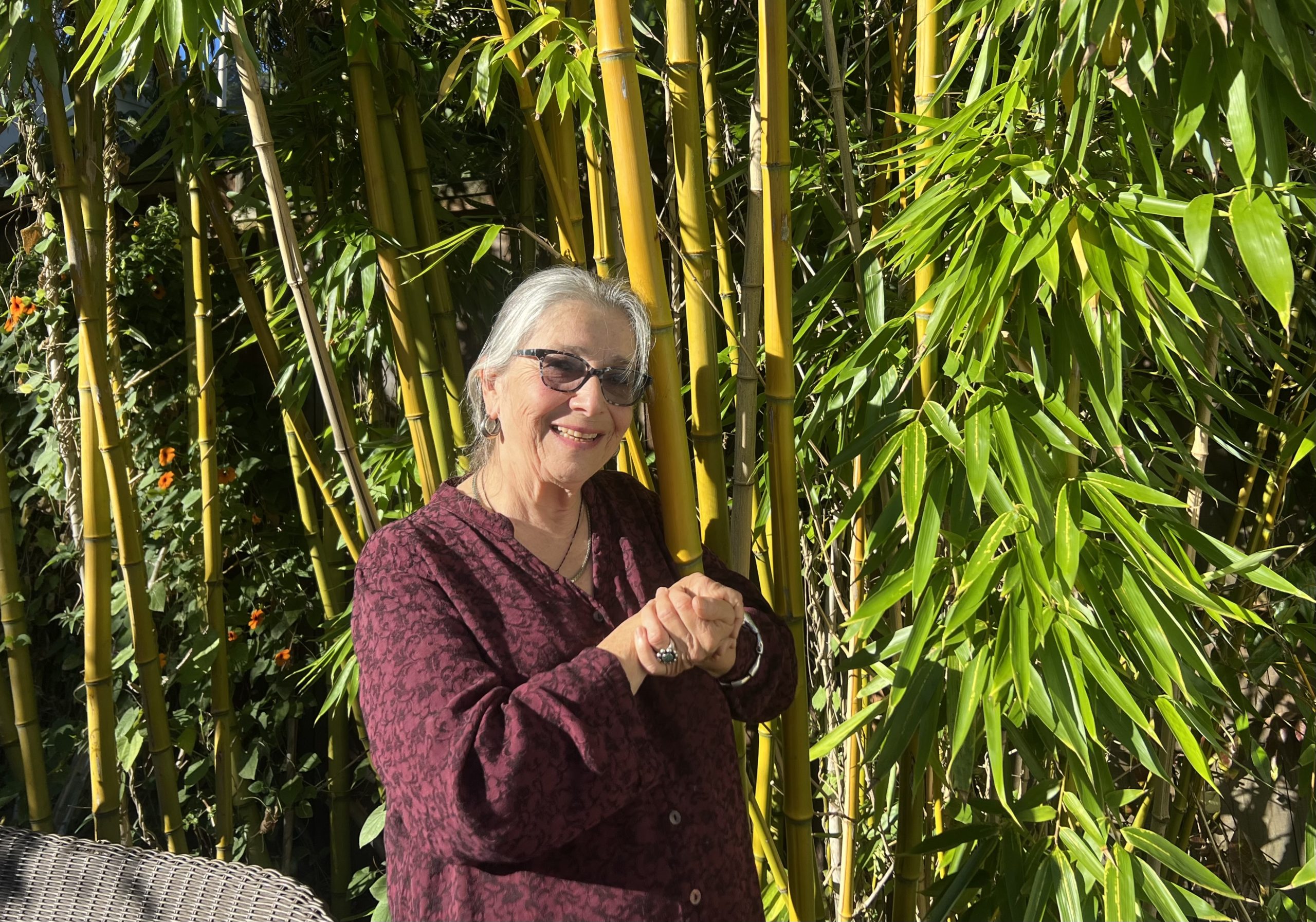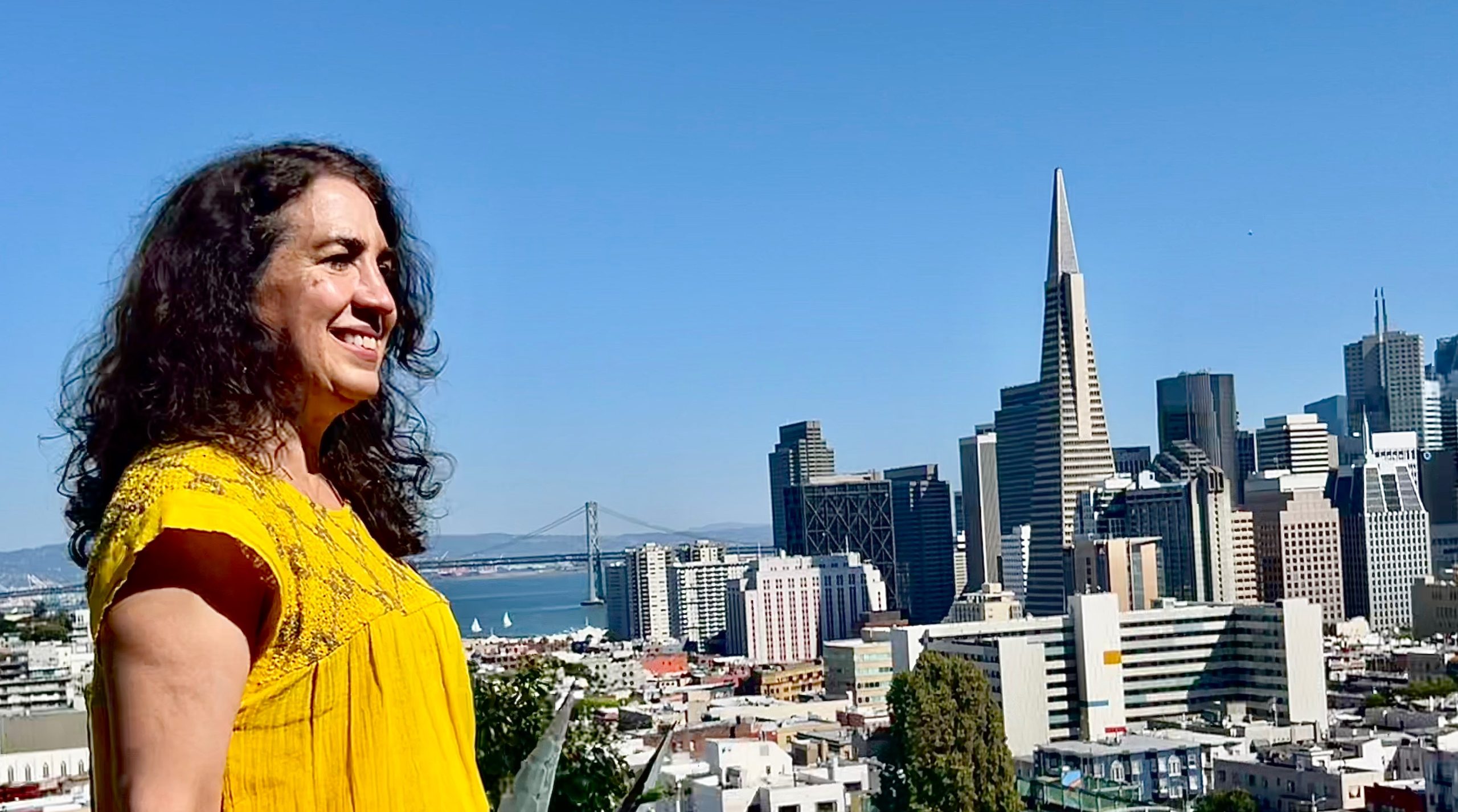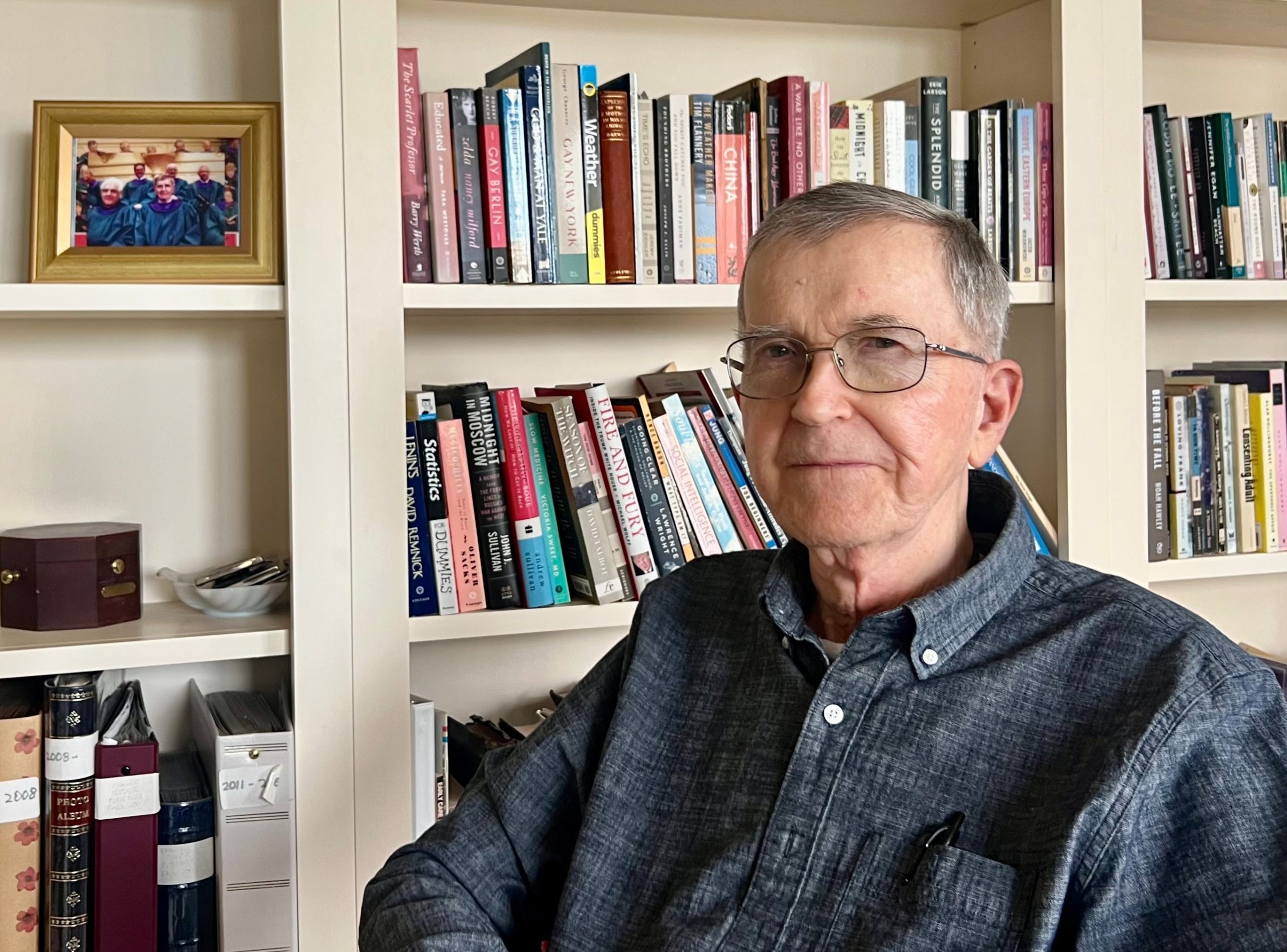Puerto Rican native who revived Mission Cultural Center for Latino Arts ‘keeping the house in order’ since Covid-19
Bringing the Mission Cultural Center for Latino Arts back to life was a natural fit for Jennie Rodriguez, who became its director 33 years ago. She had experience in many of the issues facing the community: Asylum, tenants’ rights and childcare. But she also had been involved in the arts, business and publishing. She had lived on both coasts of the United States as well as her native Puerto Rico.

Run by mostly poets and visual artists, the MCCLA was going through a difficult period in 1997: There was no organizational structure. The former board had been dismantled due to fiscal mismanagement. People couldn’t be sure that teachers would show up. “One day,” said Rodriguez, “no one could get in because the doors were locked.”

Her first tasks included finding a way to pay for a worker’s compensation lawsuit – the center had no insurance – and restoring funding from the City Arts Commission. At a required public comment meeting – a full house in the center’s theatre – she learned what was lacking. “People had a lot to say. They didn’t feel there was enough community involvement.”
Rodriguez paid off the lawsuit within 18 months, and with her first exhibit witnessed the kick-start of the Mission’s annual Day of the Dead processions. “Rooms for the Dead” was curated by the well-known Chicano visual artist René Yañez and others in the community.
“It was an iconic exhibit. To me it was very symbolic” said Rodriguez.
Getting more involved in community events
She also got the center involved in San Francisco’s Carnaval celebrations. A dancer and musician, she was surprised to discover it wasn’t participating. In her first year, she organized the first San Francisco Carnaval contingent and danced in it, too.
“Since I started, we haven’t missed one Carnaval until this year,” she said, adding, “I think it is very sad that the COVID-19 pandemic took away our 2020 Carnaval joy.”
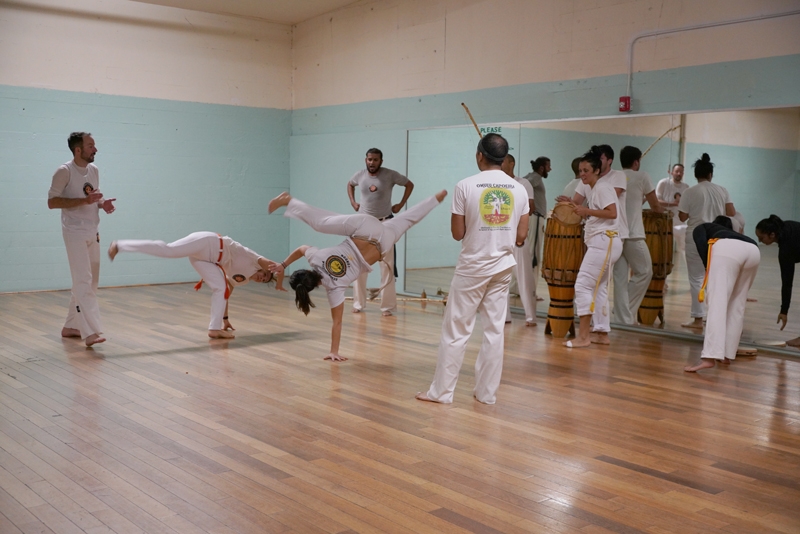
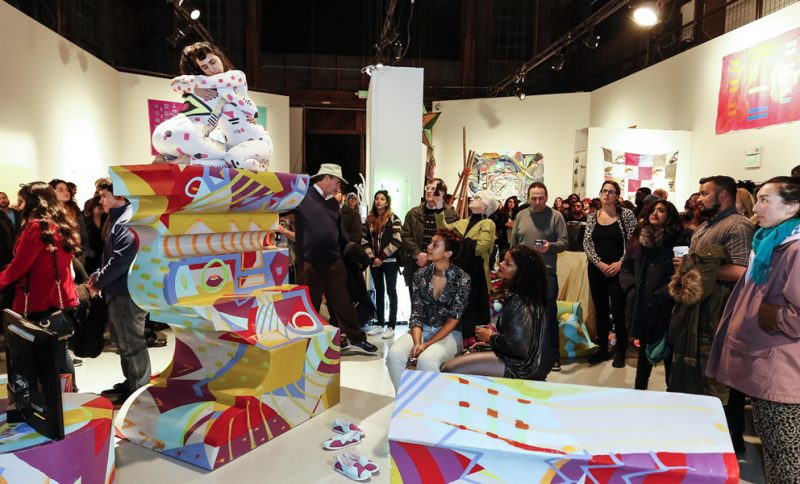
Before the pandemic, the center offered a wide range of classes, workshops and exhibits: Capoeira, Afro-Latin, Afro Brazilian and break dance to ballet, art workshops and classes, including screen printmaking. It also had an artist-in-residency program as well as art studios for rent.
Since the pandemic, the MCCLA, like many businesses, has moved many of its offerings online. Most of the staff is on unemployment. Revenue streams have dried up but Rodriguez continues to pay the bills, renew necessary licenses, and maintain classes and memberships.
“I am basically keeping the house in order,” she said. “Business goes on. You can’t let these things go or you don’t have a business to come back to.”
When Rodriguez graduated from the University of Puerto Rico, Rio Piedras, with a degree in Literature and French, she could have never imagined the many incarnations her professional life would have.
During the civil war in El Salvador, she translated documents for asylum seekers and acted as their interpreter when they went to court. She wrote a column on technology in the New Mission News. She co-founded the Puerto Rican Network, a social and cultural organization that connected people of the Puerto Rican diaspora.
A community trailblazer
She was a community trailblazer in desktop publishing. She and her partner opened one of the Mission’s first computer shops. They ran an office support business and published a newsletter read by Puerto Rican immigrants. After her first son, Manolo, was born she organized and was on the board of a childcare cooperative in the Mission.
Rodriguez moved to San Francisco from Puerto Rico in 1978. Recently divorced, she felt her family was trying to control her. Her mother worried what people would think when she went out and her ex-husband sometimes followed and harassed her. “It was hard for divorced women in Puerto Rico at that time,” she said.
She had just become involved with Manuel (Quique) Davila and she told him that if they were going to be together, they couldn’t do it in Puerto Rico. “I moved to the Bay Area and he followed pretty quickly,” she said.
They both worked at the Latino Family Alcoholism Counseling Center, Rodriguez as an outreach worker and Davila as a counselor. They have lived and worked in Puerto Rico, Boston and San Francisco – sometimes together, sometimes not.
They moved to Boston in 1980 so Davila could get a Master’s Degree in Consulting Psychology at Harvard. Rodriguez managed the artistic and cultural component of Inquilinos Boricuas en Acción (Puerto Rican Tenants in Action), an organization formed to stop the dislocation of the Puerto Rican community. With an investment from the city, IBA also transformed the area by building more than a hundred houses mirroring communities in Puerto Rico.
Rodriguez oversaw the visual arts and music program, a children’s choir and a TV station (WBNA) that broadcast to all tenants. She didn’t know it at the time, but this was her introduction to a future career in arts administration.
A stab at going back home
She and her husband returned to Puerto Rico in 1981. They wanted to raise Manolo, then six-months-old, where they had both grown up. “We had lots of ideas and projects, but things didn’t happen as expected,” she said.
They had a hard time finding a place to live. Davila found work as a university psychology teacher but started using drugs again after years in recovery. At the time there was no support for addicts or their families, she said. A friend “told me that I had a child to think about and if Quique could not quit doing drugs, I had to leave him.”
She did but life had other plans for them. Davila had a transformative experience at Easter Sunday Mass in 1982. and gave up drugs again. Weeks later, he learned that his old job at the Latino Family Alcoholism Counseling Center was open. He called and the director told him if he came to San Francisco, the job was his.
The next year, he flew back to San Francisco and moved into an apartment on Guerrero Street. Later that year, he convinced Rodriguez and her son to join him. Once she returned to San Francisco, they became a united family again.
Rodriguez learned the Mission Cultural Center was looking for a new director from a colleague at her childcare cooperative who was on its board. She thought Rodriguez would be a good fit.
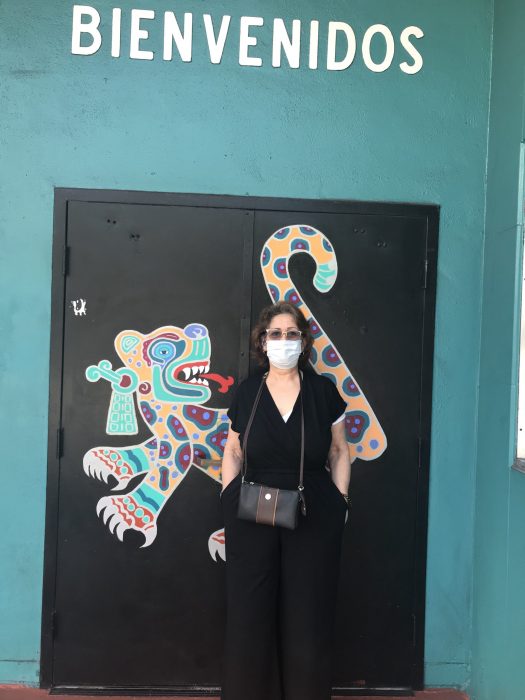
Rodriguez declined the invitation to apply. The office support business she and Davila had been running for 12 years was busy and she was caring for her mother, who was in the early stages of Alzheimer’s. But when asked again several months later, Rodriguez said, “Okay, let me give it a try.” But only for 20 hours a week. Yet 20 became 30 and she and Davila thought it might be time to phase out their business. Before long, Rodriguez was working full time.
It is a decision she has never regretted. When she took over as executive director, they had another son, Pablo. They wanted to instill in their two children a love of and connection with their Puerto Rican heritage.
“Even though my children weren’t raised in Puerto Rico, I made the effort to instill these roots in them. I wanted this to be a place where I would feel proud and where my children could come and feel proud. And I was getting paid for what I would do for free,” she said. “I was making an impact on the community.”
Rodriguez is 65 and proud that there are several seniors on the MCCLA board and staff. She wants it to be welcoming to seniors in the Mission. “It takes a senior person to think about seniors and to make young people mindful of them. I want our programming to include seniors.”
They are among those impacted by gentrification in the Mission. Many of her friends and colleagues have had to leave the neighborhood because of rising rents, and she knows it is possible the Mission could lose its vibrant Latinx presence.
But the active Latinx community and its many agencies give her hope. “Agencies are distributing food, constructing new housing for seniors, and helping with rent,” she said. “I think MCCLA will survive with the continued support of the city. We provide good cultural services to a good number of people and this is good for the city.”
A possible historic landmark

On June 24, an application was made for MCCLA’s building, which is owned by the city, to become a historic landmark.
Keeping MCCLA going is just one more of some big challenges in the past several years. Davila died in 2017. His memorial service, at MCCLA, was full of music and people of all ages, Rodriguez said. “Quique was a musician and a counselor. He was loved.” She and her sons scattered his ashes in Puerto Rico.
But the pandemic has forced her to postpone her annual family visit to Puerto Rico. She worries about her mother, who eventually had to return to her home country. Luckily, both of her sons live in San Francisco. The oldest, Manolo lives with his partner Jessica and they both teach dance and music; the youngest, Pablo, lives with Rodriguez and also teaches music.
She hopes to be a grandmother one day. “All my friends are grandparents. That is one thing I think I’m missing. I tell my sons I’m going to adopt grandchildren, but I don’t push them. It’s their decision.”
She plans to work a couple more years. She doesn’t know exactly what she will do after retirement but said, “I like training, consulting with nonprofits. I like to be a part of a team with a specific focus,” she said. “I’d like to stay in the arts.”


